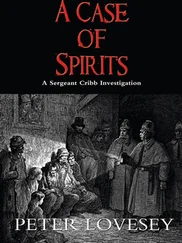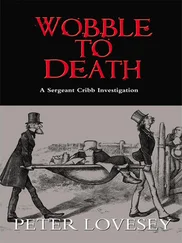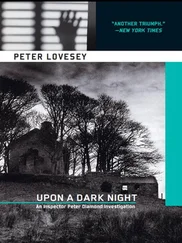I worked harder than I’d ever done, couldn’t get enough of the subject, eating up theories, devouring vast textbooks, ingesting all that was said in every lecture and tutorial. I was motivated, sober, deliriously happy with my second shot at life.
Former friends visiting the Rawlingses’ Essex retreat for dinner would often make the mistake of complimenting me on my willpower, watching as I drank mineral water while they knocked back the hard stuff. I was always quick to correct them. It had nothing to do with willpower – fear was the key. I’d already teetered at the edge of my sanity once, nothing would persuade me to do so again. Or so I thought at the time.
Three years later, the BA (hons) became an MA, with Dr Clancy telling me I had the talent to ride it all the way to PhD in forensic psychiatry if I wanted to.
I dedicated myself to finding a thesis subject. There was so much to choose from, but eventually decided to settle on the media’s easy obsession with ‘evil’, and the damage it caused to proper psychological investigation. I worked hard. Cases like the Wests’, Dunblane and numerous others seemed to spring from quiet suburban backwaters almost every month as I toiled away on my researches. And as each horrifying case broke, I found myself ever more on the ‘side’ of the perpetrators, rationalizing that there had to be some concrete reasons why they’d done whatever they’d been accused of. Concrete beyond the media’s constant assertion that they were simply ‘evil’, anyway.
Next I learnt that the Home Office had agreed to partially fund a series of PhD students through their thesis years if they participated in a national data-gathering exercise for a brand-new law-enforcement initiative identifying behavioural characteristics of incarcerated psychopaths.
Or, as Fancy put it, they’d stump up a few readies if I agreed to ask a nutter some personal questions. The programme had been up and running for a few years, and research gathered had apparently proved invaluable in lobbying the relevant parties for a change in the judicial understanding of random violence.
‘Bugger it, Adrian,’ Fancy’d said by way of explanation. ‘You only have to look at the States to see what a balls-up they’re making of it. Defence attorneys are pressing for the admission of “the crime gene” in order to get their psychos out of the death chamber. Like the murdering sods are somehow born to kill, genetically programmed, so it’s not their fault. Preposterous!’
‘And you say what?’ I replied. ‘That every lunatic is morally responsible for the actions he commits?’
‘We’re not that far, Adrian. We need more data. Will you do it? It’s bang up your street, nature of evil and all that.’
My thesis, the magnum opus – The acceptance of Evil as a resultant supernatural force actively prohibits positive psycho-social studies into the internal and external factors influencing random, unmotivated violence’ by Adrian Rawlings (soon to be) PhD.
So I agreed, both trepidacious and excited. Here was a chance to actually step inside a secure mental institution, converse with an inmate, form some kind of temporary relationship, perhaps even finally come to terms with what lured me to the analysis of violence in the first place.
It had been bothering me for some time, silently, something I tried my best to suppress, keep from friends and family. But late at night, while I worked in the gloom of a computer screen, it was always there, a warning keen to be heard and analysed, a fear which had wound its way effortlessly into my psyche, mocking my attempts to reinvent myself over the last ten years.
Maybe longer. The longer I worked at trying to understand the human mind, the more I began to analyse my own. I was finally beginning to have some understanding of my own inadequacies. The reason I had drunk so passionately was a good deal greater than simply hitting my thirties, redundant and shit-scared. No – it was for far simpler, far darker reasons. The more I drank, the less I needed to answer the real questions gently swelling and beginning their way up from deep down inside. Questions I’d buried from childhood and adolescence. Questions which the redundancy had thrown up, and which I feared would never go away.
Fancy duly put my name forward to Dr Neil Allen at HMP Oakwood High Security Mental Hospital, and after a short submission on my part detailing my willingness to compile relevant data regarding antisocial behaviour disorders, I was duly accepted and funded.
‘Game on!’ Fancy had beamed when telling me the good news. ‘A year from now and I’ll be calling the man “Doctor”.’
Fancy rang late the following Thursday night.
‘He’s gone for it, Adrian.’
‘Rattigan?’ I answered nervously.
‘Wants to see you tomorrow afternoon.’
‘Shit! So soon?’
‘Told you he would. They all do.’
‘Jesus. Tomorrow?’
‘Don’t worry. Pop into the uni. on the way. See me before ten. I’ll give you all you need to know. And Adrian?’ His voice was deadly serious. ‘Remember, you get in, you do this, you get out. You’re the boss. It only becomes a game when you agree to play it.’
‘But there’s so much about him that …’
‘Shouldn’t concern you, Adrian.’
I heard what he said, understood his warning, yet knew following the advice would be difficult, if nigh on impossible.
I was an idealistic mature student with a head full of theories and expectations. Rattigan fascinated me for one reason alone. He claimed to have killed for no other motive than his own self-satisfaction. He’d had ‘fun’ dispensing slow death.
Why couldn’t I heed all the warnings and simply accept this? What drove me to rationalize his monstrous act within my own understanding? Personal ambition? A desire to be recognized as a great forensic psychologist?
Or something else entirely?
It wasn’t that Rattigan held the answers, I did. But at the time, I was too scared to face the questions.
To date, neuropsychological studies of offenders have been blighted by small samples, lack of controls and an emphasis on institutionalized populations. However, results from such studies indicate that both poor language skills and impairment of the regulative functions controlled by the frontal lobes are consistent factors in the analysis of sociopathic antibehavioural disorders.
At present, it is almost impossible to gauge whether either factor is the result of developmental damage or neurological failure, and more work needs to be done in order to understand the complex correlation between the two.
However, current thinking suggests that many forms of sociopathic and psychotic behaviours can possibly be explained by the ineffectiveness of the subject’s ‘inner voice’, or learned morality, to temper violent outbursts.
Put simply – they appear to do what they want, to whom they like, as and when mood takes them.
Dr Neil Allen
(The Roots of Psychopathy)
Three-thirty, Oakwood High Security Mental Hospital, Cambridgeshire, RECREATION SIX.
The same three players, Rattigan, Denton and myself.
I reached into my briefcase, brought out some papers, two packs of Rothmans and a micro-cassette recorder.
Then turned to Rattigan. ‘There’s one or two things I’m obliged to explain regarding your participation in the programme.’
‘Can’t wait.’ Rattigan was already unwrapping one of the blue and white boxes.
I cleared my throat, anxious to get the script right. ‘Now that you’ve officially consented to my visits, I’ll be asking you a series of questions prepared by various agencies in order to gain a greater understanding of antisocial behavioural disorders. In addition to this, I’ll also be asking some questions I’ve formulated myself in order to help with my own studies in the field of forensic psychiatry.’
Читать дальше












